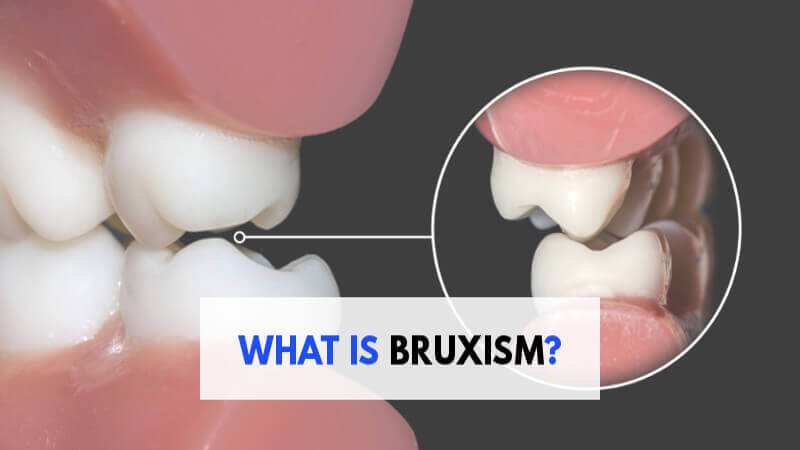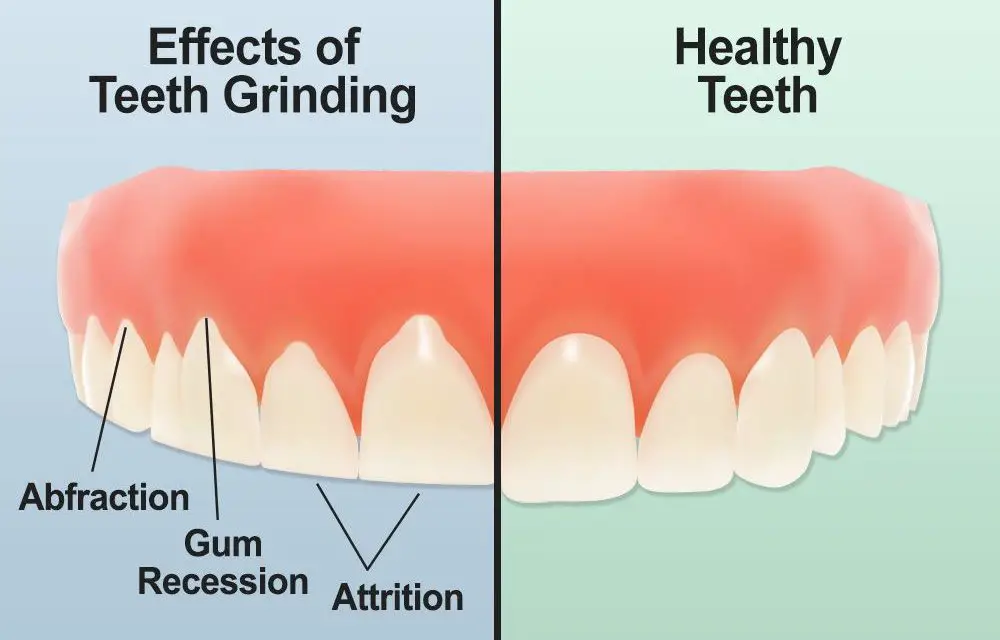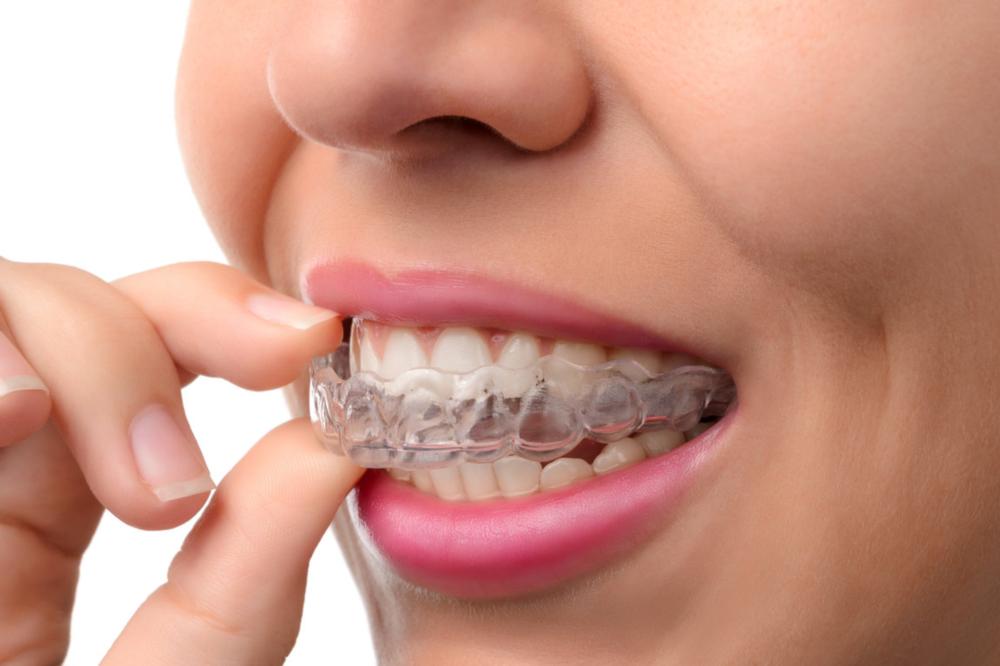Have you ever waken up in the middle of the night with painful jaw muscles? It might be due to grinding during sleep. The term grinding is referred to as bruxism. It is done unconsciously when you are asleep or awake. Some people grind their teeth during the day when they are at their workplace by applying force to their jaw muscles. It is commonly linked with driving, writing, reading, or while lifting some heavy objects. When you are asleep, it represents as rhythmic contractions and clenching.
There are around 1 in 3 individuals who suffer from bruxism. About 10% of people grind their teeth severely to a level where their teeth are extremely reduced in height.
Bruxism
There are multiple types of bruxism, one in which you clench teeth during the daytime while another clenching occurs during the nighttime while you are asleep which is known as sleep bruxism. Awake bruxism occurs due to the stressful situations when you experience depression or anxiety in your daily routine.
Sleep bruxism occurs due to the sleep disorder which is similar to the restless leg syndrome along with the periodic limb movements. People suffering from sleep disorders also suffer from snoring and sleep apnea.
The condition is more common in adults but it is also seen in teens and children. According to different researchers, 20-30% of children do have a grinding habit. It is the earliest sign that their teeth won’t align properly and they need to consult a dentist as soon as possible.

Symptoms of Teeth Grinding
The most common symptom of this habit includes a headache. According to Bruxism Association, people who grind teeth usually suffer from more headaches. Medline Plus states that there are other symptoms which are also associated with teeth grinding such as discomfort of the TMJ, enlarged facial muscles, muscle aches, sleep disorders, ear pain, stiffness in the neck and shoulders.
The symptoms include sensitivity to:
- Sweets
- Hot and cold
- Enamel wear
- Fractured
- Loose or chipped tooth
It also results in indentations over your tongue and sore spots inside the cheek area. It may also result in recession of gums along with the tooth mobility.

Causes of Teeth Grinding
- Caffeine, smoking, alcohol, anxiety, stress, sleep disorders and depression.
- However, there is little evidence that ultimately links with the direct association of any cause. According to research, bruxism is more commonly found in people who undergo obstructive sleep apnea, have a snoring habit or enjoy a bad lifestyle such as drinking alcohol, smoking, and
- According to the research 70%, people who have a clenching or grinding habit occurs due to the anxiety and stress.
Risk Factors associated with Teeth Grinding
According to a research, children who suffer from teeth grinding usually have an upper airway infection, asthma and anxiety disorders. According to a study, 62.5% of children who had teeth grinding habit suffered from respiratory problems.
A direct relationship is also found between the anxiety disorder and teeth grinding in adults. The children are also found with the same condition so it is better to take them to the dentist for prevention of further enamel-damage.
The evidence also suggests that children might have teeth grinding issues when they are suffering from pain such as an earache or a headache. This grinding condition usually relieves as soon as the pain subsides. Children with aggressive or hyperactive personality are more prone to develop bruxism.
The grinding usually occurs in adults due to the side effects of prescribed medications or medical conditions such as:
- Parkinson’s Disease
- GERD
- Sleep apnea
- Unresolved anger or frustration
- Unmanaged stress
- Huntington’s Disease
- Anxiety disorder
- Depression
- Malaligned upper and lower teeth
- Certain psychiatric medications and antidepressants
What Can You Do To Prevent Yourself From Teeth Grinding During Sleep & What Are The Treatment Options?
Follow these simple steps to prevent yourself from grinding:
- The dentist might place a mouth guard that will provide protection to the teeth from bruxism at night. It is termed as an occlusal appliance which is known with multiple names such as occlusal bite guards, occlusal splints, bite plates, night guards and bruxism appliances. These appliances are custom-made by the dentist which fits over the upper and lower teeth. Wearing these appliances offers protection to temporomandibular joint, teeth and aids in reducing the pain in jaw muscles.
- Other appliances are available which are termed Mandibular advancement devices. The appliance is custom-made and fits over the upper and lower teeth. It brings your mandible or lower jaw forward. The device is usually recommended in a condition when you are suffering from a sleep It helps in managing the sleep apnea and snoring.

- Stress is also the main cause in grinding so consult your dentist or doctor and consider their options for reducing the teeth grinding. Attend the stress counseling programs that might help in reduction of the grinding habit. Start performing exercises, see a physical therapist or start taking prescription pills such as muscle relaxants that might offer help in reduction of teeth grinding.
- Sleeping disorders can also result in teeth grinding so treat them to eliminate or reduce your grinding habit.
- Avoid consuming alcohol before going to sleep.
- Avoid sugary foods and drinks. Avoid intake of coffee, chocolate, and
- Avoid eating chewing gums or pencils as they might result in teeth grinding habit.
- Train yourself to avoid grinding or clenching. If you observe clenching or grinding during the daytime then place your tongue between the teeth that help in training the jaw muscles to stay in relaxed position.
- Place a warm washcloth anterior to your earlobe against the cheek which aids in relaxing the jaw muscles.
- If you are suffering due to the improper teeth alignment then visit your dentist. He might recommend you oral surgery, braces, crowns or reshaping the occlusal surfaces of teeth.
- If a patient of bruxism cannot be treated with conventional treatments, the doctors might suggest the Botox injections which are safe and efficient for reducing the pain in TMJ muscles.
- The natural treatments include the combination of cognitive behavioral therapy and occlusal splints. It is highly effective and aids in muscle relaxation.
- If grinding does not occur due to some underlying cause then biofeedback should be considered which helps in relieving the symptoms.
- Vitamin C supplements along with magnesium intake aids in stopping the teeth grinding habit. Vitamin C also helps in reducing the stress by increasing the dopamine levels. Magnesium, on the other hand, is helpful for improving the sleep quality. Vitamin B5 is also useful for overcoming bruxism. It helps in balancing the mood.
- Valerian root is an herb which serves as an anti-anxiety treatment and a natural sedative. It aids in improving the sleep quality and has no side effects. According to a study, valerian root helps in improving the quality of life and improves the symptoms associated with restless leg syndrome.
Conclusion
It is advised to consult your doctor or dentist if your sleeping partner has noticed that you grind your teeth. Because if you waste time and do not visit the dentist then your teeth will be severely damaged along with the gums. It is also important to visit your doctor as you might be suffering from sleep apnea or snoring issues that can be treated with the consultation of your doctor. Sleep well at night and follow the consistent sleeping patterns to avoid such issues.